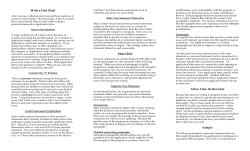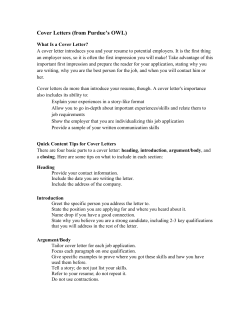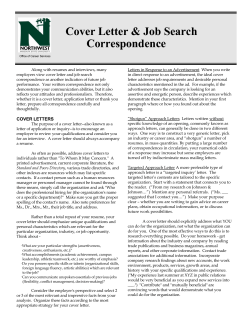
The European Higher Education Area LIN K S
LIN K S The official Bologna Process website 2007–2009: www.bologna2009benelux.org The gateway to academic and professional recognition: www.enic-naric.net The European Quality Assurance Register for Higher Education: www.eqar.eu The Study in Europe portal: www.study-in-europe.org Published and printed by: Austrian Federal Ministry of Science and Research The European Higher Education Area 3 The European Higher Education Area „Building on our rich and diverse European cultural heritage, we are developing an EHEA based on institutional autonomy, academic freedom, equal opportunities and democratic principles that will facilitate mobility, increase employability and strengthen Europe’s attractiveness and competitiveness.“ Ministers responsible for Higher Education in the countries participating in the Bologna Process, London Communiqué, May 2007 The Bologna Process and the European Higher Education Area The overarching aim of the Bologna Process is to create a European Higher Education Area (EHEA) that promotes mobility; attracts students and staff from Europe as well as from other parts of the world; and is internationally competitive. It aims to do this by facilitating greater comparability and compatibility between the diverse higher education systems and institutions across Europe and by enhancing their quality. Today, 46 European countries participate in the Bologna Process. They are all party to the European Cultural Convention and committed to the goals of the European Higher Education Area. Starting from a non-binding agreement at European level (the 1999 Bologna Declaration), the Bologna Process has initiated sweeping reforms in higher education across Europe at system and institutional level. An important characteristic of the Bologna Process – and key to its success – is the close cooperation between governments, higher education institutions, students, staff, employers and quality assurance agencies, supported by the relevant international organisations. A full list of members and consultative members of the Bologna Process can be found on pages 10 and 11. 4 5 W H AT A R E T H E R E FOR MS A LL A BOU T ? Easily readable and comparable degrees: a qualifications framework of three cycles The Bologna Process is probably best known for its objective to structure higher education along three cycles (Bachelor-Master-PhD), converging formerly very diverse higher education structures in Europe and bringing them in line with international standards. In 2005, Ministers adopted an overarching Framework for Qualifications in the European Higher Education Area comprising three cycles and they agreed to develop national qualifications frameworks that are compatible with this overarching framework. National qualifications frameworks describe the qualifications of an education system and how they interlink. They describe what learners should know, understand, and be able to do on the basis of a given qualification, as well as how learners can move from one qualification to another within a system. The self certification report, which is the final stage in the development of national frameworks, demonstrates how the national framework relates to the overarching Framework for Qualifications in the European Higher Education Area. Access to the second cycle (Master) usually requires successful completion of first cycle studies (Bachelor), lasting a minimum of three years. The degree awarded after the first cycle should also be relevant to the European labour market as an appropriate level of qualification. Countries are currently defining learning outcomes for qualifications in each of the three cycles, using the Framework for Qualifications in the European Higher Education Area as a common reference point. Work to define learning outcomes is also a significant component in the broader move towards student-centred learning and teaching. Doctoral education – generally corresponding to a workload of 3–4 years full time – was introduced to the Bologna Process as the third cycle by Ministers in 2003, when they agreed that: The core component of doctoral training should be the advancement of knowledge through original research; Doctoral programmes should promote interdisciplinary training and the development of transferable skills to meet the needs of the wider labour market; Participants in third cycle programmes should be considered both students and early stage researchers; and More doctoral candidates should be encouraged to take up research careers within the European Higher Education Area. Joint Degrees The Bologna Process has paved the way for increasingly innovative, cooperative, cross border study programmes and a growing number of joint degree programmes are being developed across Europe. The following key features are usually associated with qualifications described as joint degrees: the programmes leading to them are developed or approved jointly by several institutions; students spend significant periods of time at partner institutions; periods of study and exams passed at the partner institution(s) are recognised fully and automatically by all institutions involved; teaching staff from each participating institution devise the curriculum together, form joint admissions and examinations bodies and participate in mobility for teaching purposes; and students who have completed the full programme should obtain a degree which is awarded jointly by the participating institutions, and is fully recognised in all countries. 6 7 Mobility „Mobility of staff, students and graduates is one of the core elements of the Bologna Process, creating opportunities for personal growth, developing international cooperation between individuals and institutions, enhancing the quality of higher education and research, and giving substance to the European dimension“. Tools that facilitate the recognition of qualifications are the European Credit Transfer and Accumulation System (ECTS) and the Diploma Supplement. The ECTS balances a programme’s average workload with the learning outcomes and competences to be achieved. The Diploma Supplement describes the qualification in an easily understandable way, relating it to the higher education system in which it was earned and to the overarching qualifications framework. Ministers responsible for Higher Education in the countries participating in the Bologna Process, London Communiqué, May 2007 Quality Assurance Facilitating mobility is one of the main objectives of the creation of a European Higher Education Area and much progress has been made. Intra-European and international student and staff mobility have become an essential part of European higher education culture. Efforts are being made to tackle the remaining challenges, especially regarding visas, residence and work permits as well as financial incentives (including portable loans and grants for students or pension arrangements for staff). In higher education, the term quality assurance refers to all the policies, ongoing review processes and actions designed to ensure that institutions, programmes and qualifications meet specified standards of education, scholarship and infrastructure. Quality assurance relies on stakeholder engagement and aims to guarantee and further enhance the quality of higher education provision. More than 5600 higher education institutions in Europe offer a great variety of degree programmes for domestic and international students. Europe provides a unique cultural experience in a dynamic, plurilingual and multinational environment with high-quality teaching and research for students and academic staff. Recognition of Qualifications The purpose of recognition is to make it possible for learners to use their qualifications in another education system or country without losing the full value of those qualifications. Each country of the European Higher Education Area has a national information centre where students, academics, employers and others can obtain information about recognition. The main international legal text that aims to further the fair recognition of qualifications is the Council of Europe/UNESCO Convention on the Recognition of Qualifications concerning Higher Education in the European Region (Lisbon Recognition Convention). The Standards and Guidelines for Quality Assurance in the European Higher Education Area adopted by Ministers in 2005 and commonly referred to as European Standards and Guidelines (ESG) provide guidance on quality assurance to agencies and institutions. The European Quality Assurance Register for Higher Education (EQAR) set up in 2008 is designed to list those agencies which operate in accordance with the European Standards and Guidelines and the appropriate national legal provisions. The Register aims to increase confidence and transparency regarding quality assurance – and ultimately qualifications – in higher education. 8 9 The social dimension and equal opportunities Lifelong Learning „We share the societal aspiration that the student body entering, participating in and completing higher education at all levels should reflect the diversity of our populations. We reaffirm the importance of students being able to complete their studies without obstacles related to their social and economic background. We therefore continue our efforts to provide adequate student services, create more flexible learning pathways into and within higher education, and to widen participation at all levels on the basis of equal opportunity.“ Lifelong learning has been recognised as an essential element of the European Higher Education Area since 2001. It is inherent in all aspects of the Bologna Process and is furthered by: Ministers responsible for Higher Education in the countries participating in the Bologna Process, London Communiqué, May 2007 The European Higher Education Area aims at providing learners with equal opportunities in higher education, fostering social cohesion and maximising the potential of individuals in terms of their personal development and their contribution to a sustainable and democratic knowledge-based society. By 2009, countries will report on their national strategies and policies for the social dimension, including action plans and measures to evaluate their effectiveness. Employability In the context of the Bologna Process, employability is defined as the ability to gain initial employment, to maintain employment, and to be able to move around within the labour market. Employability has been one of the main objectives of the Bologna Process from the very start. Each cycle of higher education should be relevant to the labour market. Further dialogue is needed between public and private employers, students, academics, higher education institutions and governments, especially related to first cycle qualifications in order to realise this goal fully. improving the recognition of prior learning, including non formal and informal learning; creating more flexible, student-centred modes of delivery; developing flexible learning paths, allowing learners, for instance, to alternate between work and study; and widening access to higher education. National qualifications frameworks are also an important tool in supporting lifelong learning. European Higher Education in a Global Context The development of the European Higher Education Area is stimulating growing interest in other parts of the world and has prompted discussion between European and international partners on a range of policy issues. To develop a framework for cooperation at European, national and institutional level, Ministers adopted in 2007 the strategy “The European Higher Education Area in a Global Setting”. The strategy encompasses the following priorities: improving information on the European Higher Education Area; promoting European Higher Education to enhance its world-wide attractiveness and competitiveness; intensifying policy dialogue; strengthening cooperation based on partnership; and furthering the recognition of qualifications. These five priorities provide a common strategic framework to which all stakeholders in the European Higher Education Area can make their full contribution, building on a wide variety of existing and new initiatives. 10 11 COU N T RIE S PA RTI CIPATING IN T H E PRO C E S S OF C R E ATING T H E EU ROPE A N HIGH E R E DUC ATION A R E A A DDITION A L M E M BE R European Commission Albania Andorra Armenia Austria Azerbaijan Belgium Bosnia and Herzegovina Bulgaria Croatia Cyprus Czech Republic Denmark Estonia Finland France Georgia CONS U LTATI V E M E M BE R S European University Association (EUA) European Association of Institutions in Higher Education (EURASHE) European Students’ Union (ESU) Council of Europe UNESCO European Centre for Higher Education (UNESCO-CEPES) European Association for Quality Assurance in Higher Education (ENQA) BUSINESSEUROPE Education International Pan-European Structure (EI) Germany Greece Holy See Hungary Iceland Ireland Italy Latvia Liechtenstein Lithuania Luxembourg Malta Moldova Montenegro Netherlands Norway Poland Portugal Romania Russian Federation Serbia Slovak Republic Slovenia Spain Sweden Switzerland “the former Yugoslav Republic of Macedonia” Turkey Ukraine United Kingdom Eu rop ea n a c u Higher Ed n o ti r A a e
© Copyright 2025





















